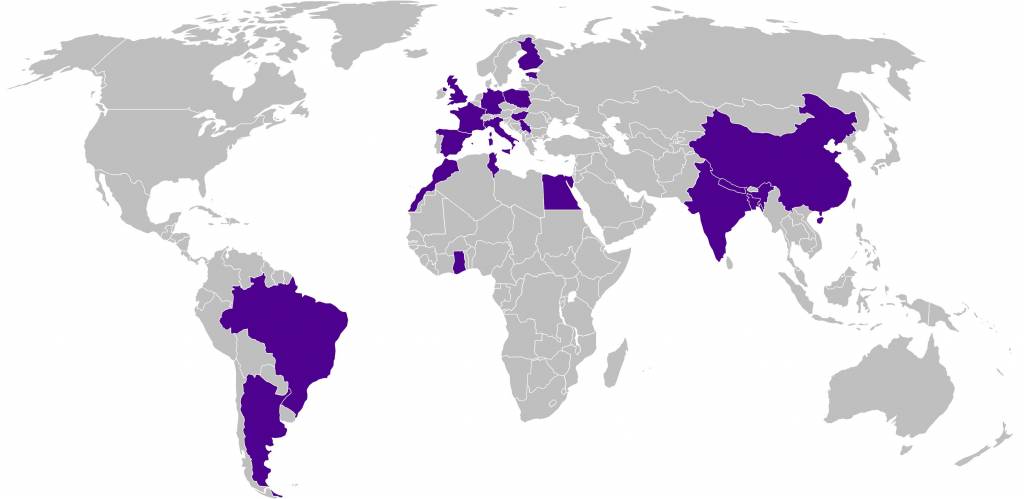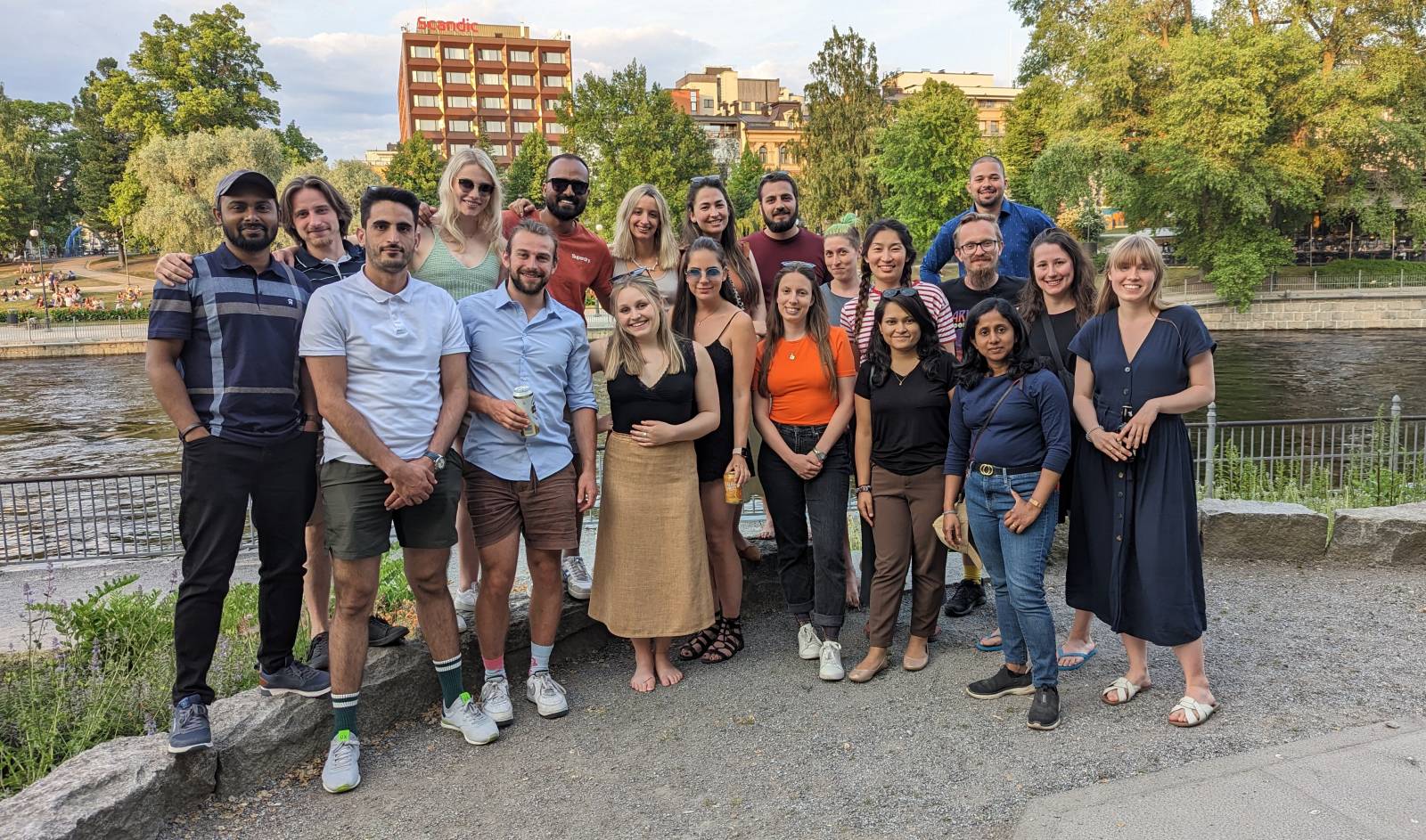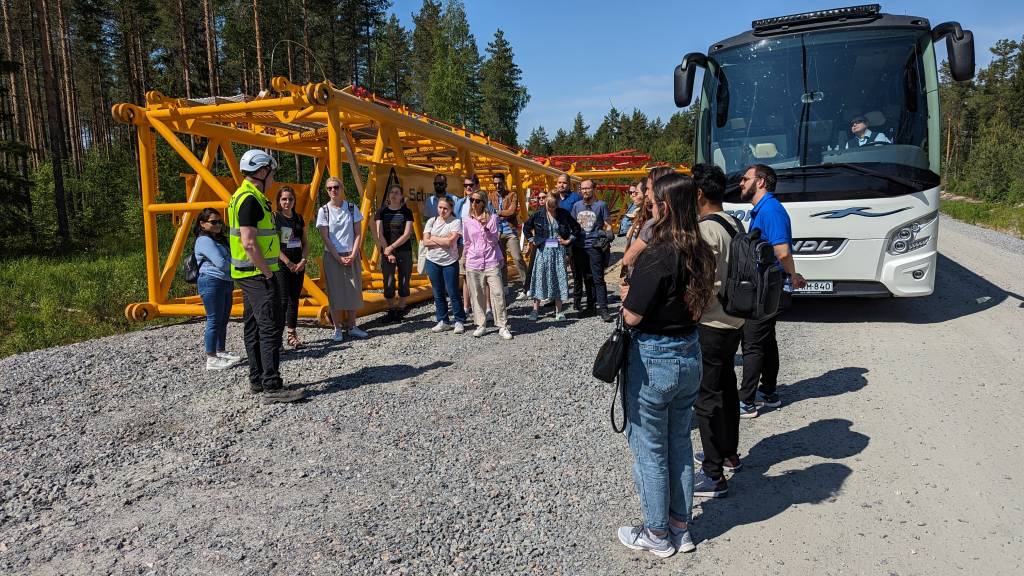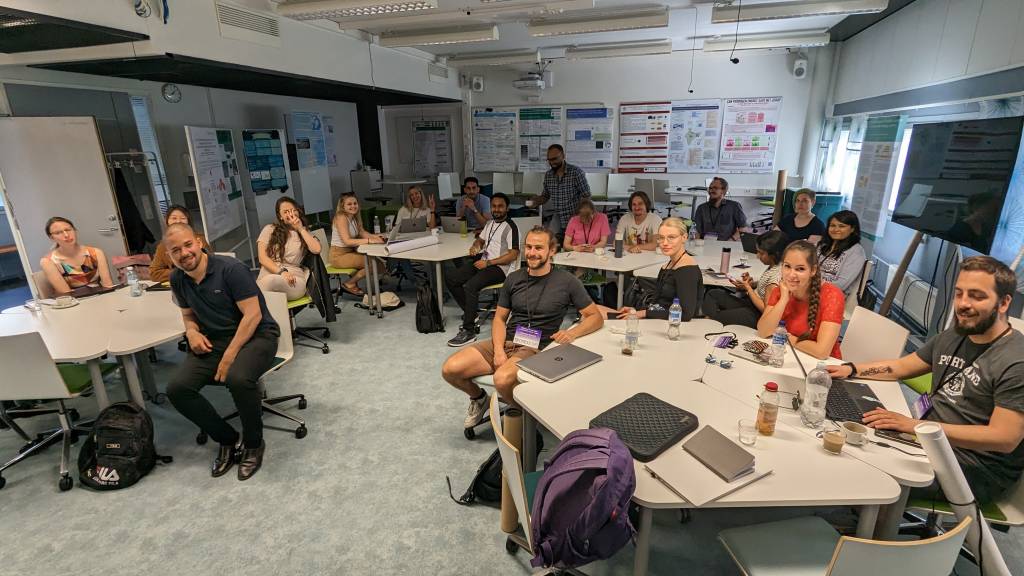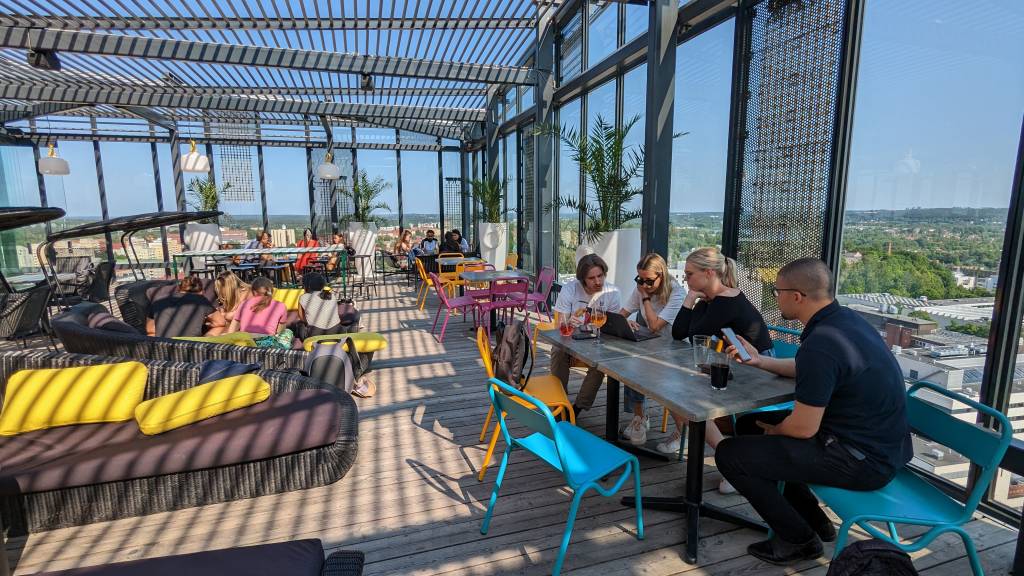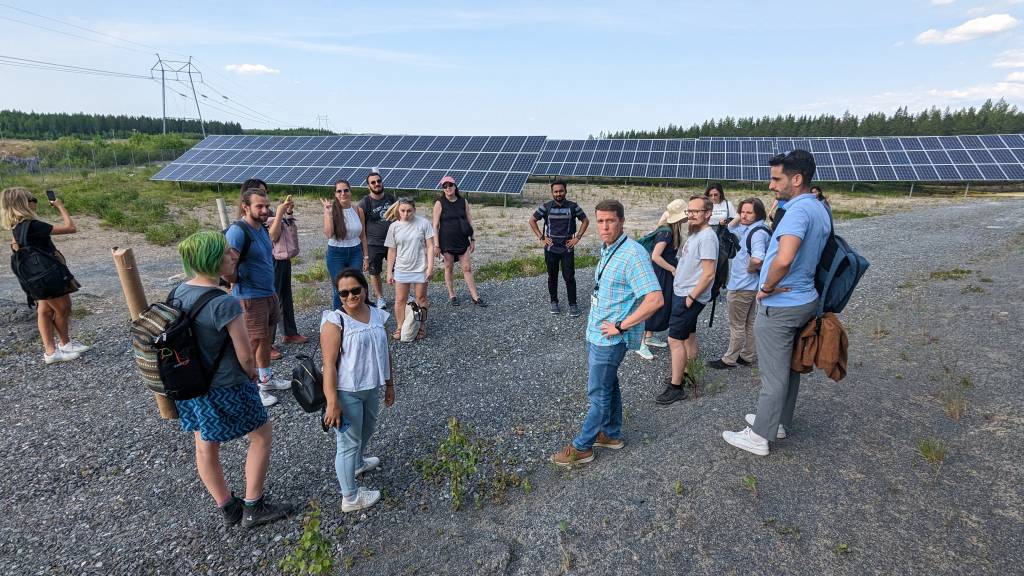CNESS Summer School 2023
Tampere University, Tampere – Finland
12. June – 18. June 2023
18h contact teaching, three site visits (8h), and an energy simulation (3h), 2 ECTS
s
After the great success last year, CNESS welcomed 21 students, researchers and professionals from various energy-related fields and social backgrounds for its second Summer School from June 12-18, 2023. Building on the experiences made in the preceding edition, this year´s program slightly changed and included the topics of hydrogen, cyber security, and microgrids. During the week, 17 speakers presented more than 19 topics on energy policy, sustainable architecture, just heat transition, electrification and many more.
The overall aim remained the same as CNESS designed the summer school for students and young professionals to offer them a general overview of the fundamentals of energy, including technology, economic, and societal aspects. Within the program, participants are guided through the main pillars of the energy system as a whole and the path to climate neutrality, including a social program to introduce them to the Nordic/Finnish society, culture and nature. .
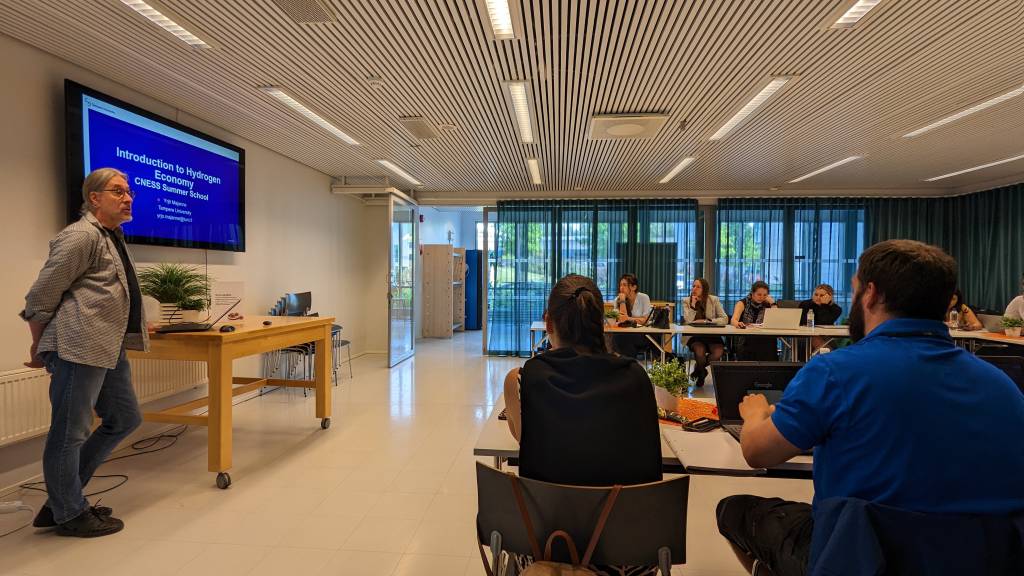
Program:
On Monday, CNESS coordinator Carl Muth greeted the participants and gave them a short tour around the campus, including background information about Tampere, Tuni and the research platform. After arriving at the premises, the participants had time for networking and discussing their posters. Similar to the 2022 edition, the students also had to bring in their knowledge during the poster sessions, for which they had to visualise their research findings with a poster. However, this year we gave the participants more time to discuss their research poster with each other and the speakers, as was recommended by the 2022 participants.
Our Jean-Monnet Professor and CNESS lead PI Pami Aalto officially opened the summer school with an introduction to energy policy and its interplay with the energy system, followed by a session focused on the concept of electrification and its impact on transportation. Building on that, Professor Pertti Alasuutari underlined the often-overlooked but needed societal changes in the process of electrification to ensure the success of the energy transition. The day ended with the official welcome dinner at Ravintola Tampella, where the participants could get to know each other and some of the CNESS speakers.
The next day started with a presentation from Deborah Kupperstein Blasco about adopting preventive innovations. Here, the students had to discuss how they implement methods to prevent any risks during their research in small groups. Besides the obvious standard procedures, the preventive methods of each discipline can vary significantly, and the discussion about it helped to gain a new understanding. After the lecture, the summer school participants went to the Rustari wind farm for the first field trip of this year´s program. At the site, Eero Länsimäki from OX2 gave a tour around the wind farm and explained the company´s work as a developer for wind power projects. For around two hours, the participant could ask questions about the construction part of renewable energy in Finland – such as permission issues, land ownership, technology and costs.
The third day began with a known face from last year´s program Eero Nippala who addressed the difficulties of sustainable retrofitting of Finnish buildings and what changed in the previous 12 months due to the energy crisis. Sarah Kilpeläinen from the Faculty of Building Environment completed the architecture panel by presenting her research about a just-heat transition in Finnish residential buildings. Although the Nordic climate differs mainly from the areas where most participants come from, the topic of efficient heating and cooling buildings with renewable energy at affordable prices is an increasing issue worldwide, especially in larger cities. After the lunch break, Yrjö Majanne introduced hydrogen – its technology potential and limitations. This helped the students better understand the problems of hydrogen partnerships in Africa and elsewhere, as presented by our international guest speaker and U.S. Fulbright Scholar Christoper Cassidy.
Since CNESS combines Tampere University’s expertise in energy research from five faculties and three different campuses, this year, we also decided to have some lectures at the Hervanta campus, where several engineering and natural sciences research groups from CNESS are located. The fourth day started with Yrjö´s second lecture about the operation of electric power systems with a high share of variable renewable generation, where he underlined technical challenges as missing the inertia effect from renewables-based power production. Next, Professor Teemu Laine built on Debora´s presentation from day two and gave a detailed presentation about decision processes and priorities in energy-related investments. After the lunch break and back to the Kappelisali located in the Festia building, Kari Systä introduced the participants to the importance of software and data for energy communities and microgrids in the future energy ecosystem. In both Teemu´s and Kari´s lectures, the students had to discuss some aspects of the energy systems first within the group and later share their findings with the others.
Besides the presentation, the students also had to bring in their knowledge in lively discussions during the class and in an energy simulation that took place at the end of day four at Moro Sky Bar. High above the roofs of Tampere, with a fantastic view of the city´s surrounding nature and lakes, the participants had to create a unique set of policies to combat global warming. Though their pre-existing expertise and newly gained knowledge during the multidisciplinary five-day program helped the participants, the recently updated version of the En-ROADS simulation is a difficult task even for established energy and climate research experts.
The fifth and final day of the summer school started with three short presentations about different aspects of biomass and biofuel from Vaibhav Agrawal, Tero Jeronen and Chao He. Building on that, PhD student Babak Arjmand gave a tour to the EHTA pilot plant located at the Hervanta and explained its functions. Similar to the 2022 edition, the summer school is based on the belief that seeing things in addition to hearing helps understand unknown areas and their particular importance. Thus, after the EHTA pilot plant visit, the participants also travelled to Lempäälä for a guided tour around the LEMENE Microgrid Project. Here, Mikko Kettunen, Chief Executive Officer of Lempäälän Energia Oy, showed and explained the various parts of the smart medium-voltage microgrid (PV power plant, gas engine, fuel cells, energy storage, etc.), including its importance for the industrial area of Marjamaki and future energy projects. With this visit, the official part of the summer school ended. Nevertheless, all participants were welcome to join us for the goodbye dinner on Friday evening and the social activities on Saturday before leaving on Sunday morning.
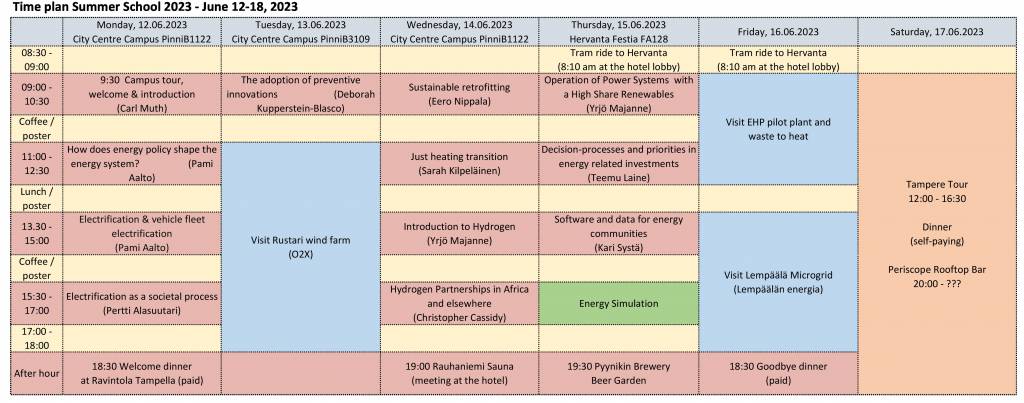
Social program:
Attending a summer school also includes learning more about the hosting country´s culture and society. Finland is known for its vast nature, thousands of lakes, and, of course, sauna. After the lectures, the participants could join an after-hour social program that included a visit to Rauhaniemi Sauna with a fresh bath in the lake, the Pyynikki Brewery Beer Garden, a tour around Tampere to see the old parts of the town and many more. At Ravintola Tampella, located in a former factory building, the participants could experience Tampere´s textile industry history and taste the emerging Finnish cuisine. The visits to the rooftop bars Periscope and Moro offered the students to have a different view on the city and the surrounding nature with the two main lakes, Pyhäjärvi and Näsijärvi. In addition, the participants could also rent a bike from the hotel for free to encounter the city on their own. Thanks to the exceptionally warm weather in June, the summer school days often ended with drinks and food outside, enjoying the never-ending daylight in Finland in June.
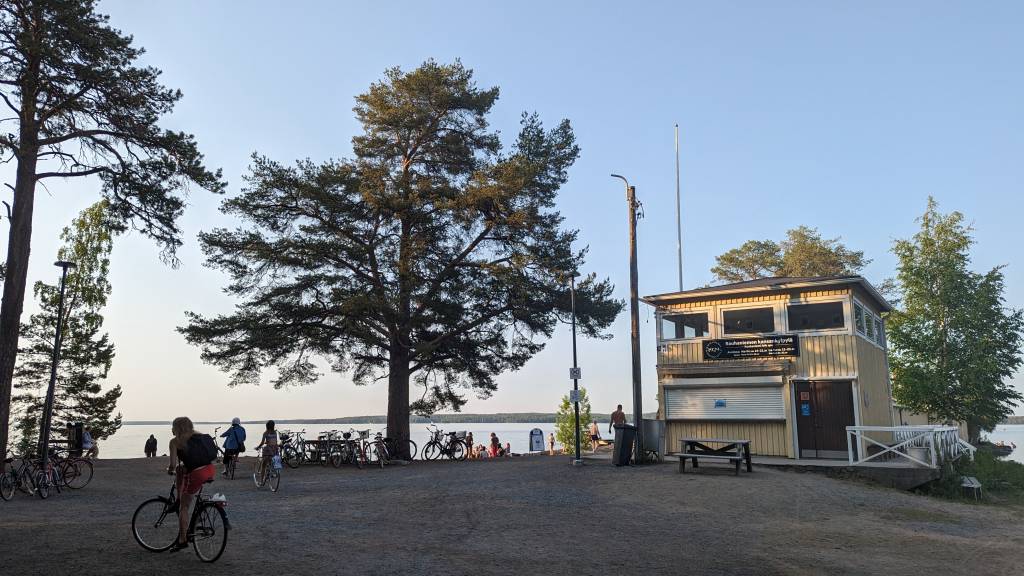
Participants and their feedback
For its Summer School, CNESS aims to have diverse participants of different social and academic backgrounds covering various parts of the energy transition from engineering, architecture, social sciences, politics, business and law. Therefore, in April 2023, CNESS selected 14 doctoral researchers, four master students and three professionals from 17 countries and four continents to join us for an intensive one-week program in Tampere. Twelve participants already work or study abroad and thus could bring in their experiences from their new place of living. This multitude of perspectives strengthened the discussions and enabled the participants to understand the energy system and its challenges better.
